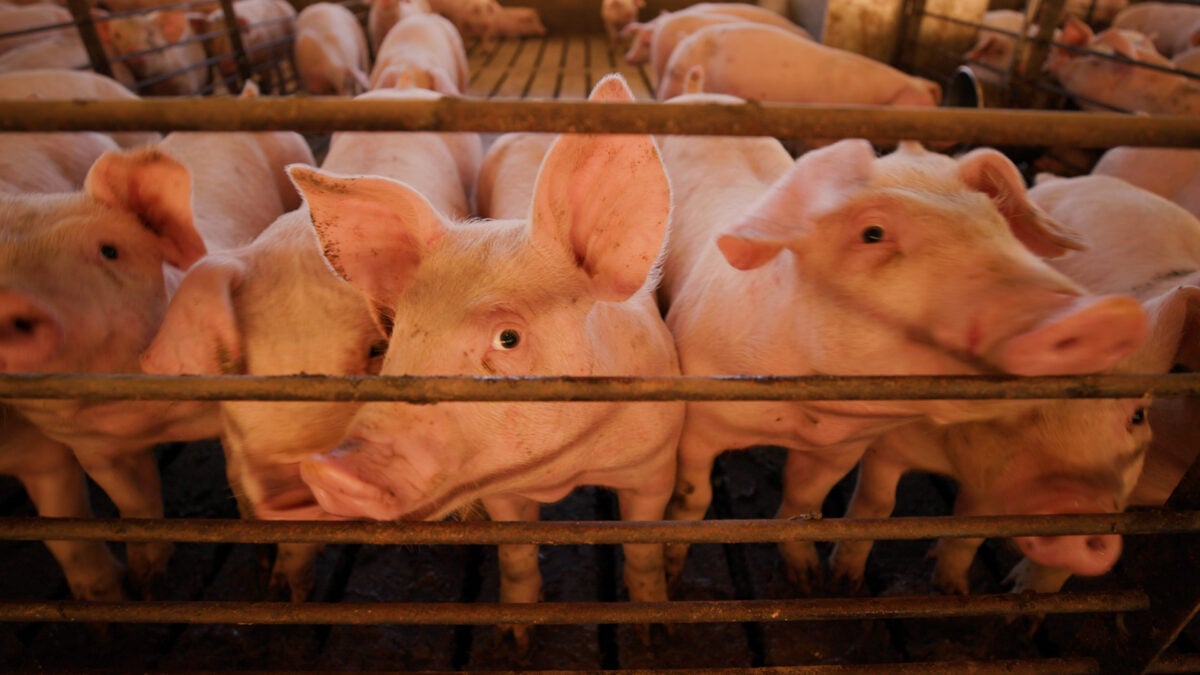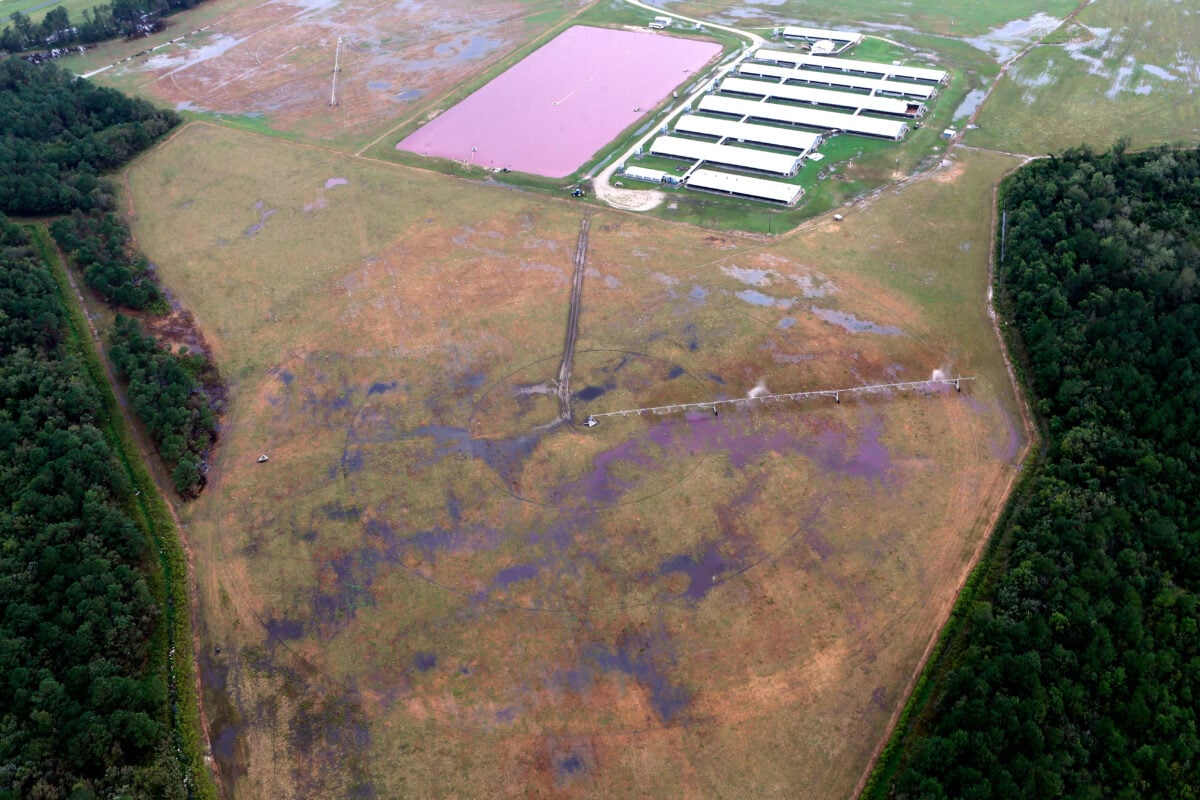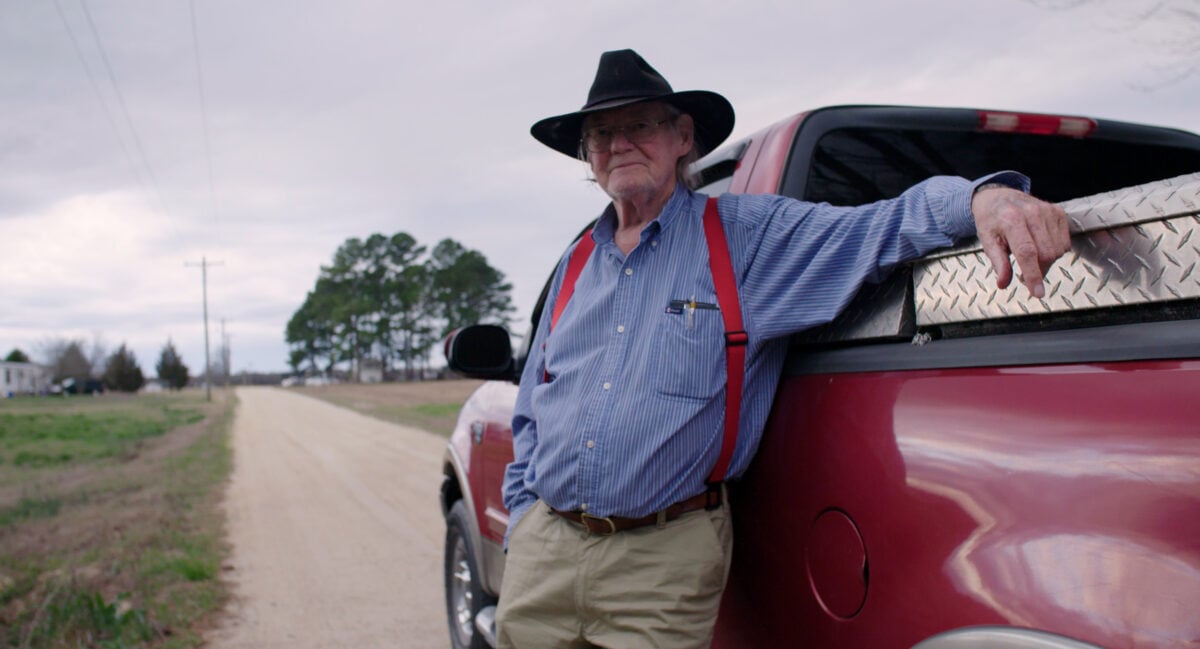New film The Smell of Money involves a lot of uncomfortable sights and smells. Residents see farmers spray fields next to their houses with pig manure; the film’s viewers see the residents suffer from the effects of all this excrement. For a film about the dirty outputs of pig farming, The Smell of Money is hard to take your eyes off.
To some, the subject matter might sound about as appealing as the fecal kind that infects the residents’ air. But this is a film that everyone whose money goes to supporting the pork industry should be compelled to watch. In it, the devastation animal agriculture causes communities – often unseen and under-appreciated – is clear for all to witness.
“Our goal for the film has always been to create an impact and inspire change,” Jamie Berger, the film’s writer and producer, tells Plant Based News (PBN). “So that’s the lens through which we’ve approached the entire experience.”
A film about North Carolina
The Smell of Money puts North Carolina’s pig farms on trial. The state is one of the largest pork producers in the world, with 9.4 million pigs. Berger, along with director Shawn Bannon, make sure that viewers understand just how astronomical and ruinous this industry is.
“I was born and raised in North Carolina,” Berger says. “Learning about my home state’s pork industry and its impacts on people, animals, and the environment in college transformed me into an activist and inspired me to devote my life to ending factory farming.”

North Carolina is home to more pigs than people. A wide-angle shot of more than 800 pigs crammed into one small barn shows how that is possible. We also see the impact of all these animals: giant open-air cesspools filled with millions of tons of feces and urine.
In the film, Rene Miller, a lifelong resident of North Carolina gives a tour of the fields and hog farms surrounding her home. She points out the “lagoon”, where the pigs’ waste is stored. Once filled, its contents get sprayed onto a field opposite her property.
People versus pork
Miller is one of the plaintiffs in the epic legal battle at the heart of the film. Taking on Smithfield Foods, the world’s largest pork company, the residents fight to reclaim their rights to clean air and pure water.
As with most David-vs-Goliath battles, it is clear whose side we are on. The nameless, faceless multinational is a ruinous giant destroying the livelihoods of local residents through its ruthless profit-making activities.
“We strove to allow those most affected by this issue to tell their own stories, in their own time, and in the hope of creating a film that would resonate with audiences on a deeply human level,” says Berger. “In exposing an industry that robs our participants of their dignity, we did our best not to replicate this harm through extractive filmmaking.”
Naeema Muhammed, another local resident, poses two of the film’s key questions. “What’s the real cost of what we want?” she asks. “Who’s paying the price?”
Around the world, more people are waking up to the ethical and environmental impacts of animal agriculture. Likewise, researchers have documented the effects on human health; for example, air pollution from farms is responsible for 17,900 deaths in the US every year. Yet, the human stories of the meat industry’s destruction are sometimes pushed to the margin.
Environmental racism at the heart of factory farming
The Smell of Money puts the focus onto the racial injustices at the heart of factory farming.
The devastating effect of pig farming on residents is nothing new. Eastern North Carolina’s mostly Black residents have long been disproportionately affected by mega industrial farms (or concentrated animal feeding operations, CAFOs). This is an example of environmental racism, where communities of color are adversely affected by policies that force them to live in proximity to toxic waste.

“We are under no illusion that our film alone will bring justice to communities in North Carolina,” Berger says. “But we hope the film unites diverse groups fighting against factory farming. As we illustrate in the movie, this is a system that harms all of us, and we will only transform it when we work together.”
“A good American won’t intentionally stink up another American’s home”
One of the film’s key protagonists is Don Webb, a teacher who got into the pig industry in its early days in North Carolina as a way to make some extra cash.
New to the industry, he quickly became aware that the stench of his operations was harming his neighbors. “A good American won’t intentionally stink up another American’s home,” Don says in one of the film’s most memorable lines. He escaped the pig business and has since devoted his life to fighting back against the industry.
“Don’s story exemplifies what true allyship looks like,” Berger says. “He made an enormous personal sacrifice to do what he knew was right and to use his own racial and economic privilege to fight for others who had been deprived of their fundamental human rights to clean air, clean water, and a safe place to live.”

Stop paying for environmental racism
Berger hopes the film will be a useful resource for environmental and social justice causes. “We hope that advocates and organizations fighting for justice will use the film as an education and advocacy tool to achieve their own goals,” she says.
Beyond activist groups, the film should open all viewer’s eyes to the true impacts of animal agriculture. “One clear, empowering action consumers can take right away is to withdraw our support from factory farming by refusing to buy animal products,” says Berger. In the US, 99 percent of all meat, dairy, and eggs comes from factory farms.
“Animal agriculture is rooted in deeply entrenched systems like capitalism and colonialism that oppress and commodify living beings,” Berger adds. Although changing these structural forces involves decades or centuries of collective effort, individuals are not powerless to influence.
One farmer’s transition to plant based
Tom Butler is a North Carolina hog farmer, who became disillusioned when he realized the impacts his activities were having on local communities. “The consumer can shut down Smithfield next week,” he says in the film.
He is now actively transitioning towards growing mushrooms in partnership with his son, Will. “They have been wonderful supporters of the film and we are excited to see their progress,” says Berger.
Tom and Will are working with Mercy For Animals’ Transfarmation Project, which supports factory farmers to transition to growing sustainable crops. “Many farmers are desperate to get out of this business that keeps them trapped in debt and emotional and physical anguish,” Berger adds. “So the hope is that Tom and others in the program will serve as models others can follow.”
The Smell of Money is available to stream now on Apple, Google Play, Amazon, and YouTube






